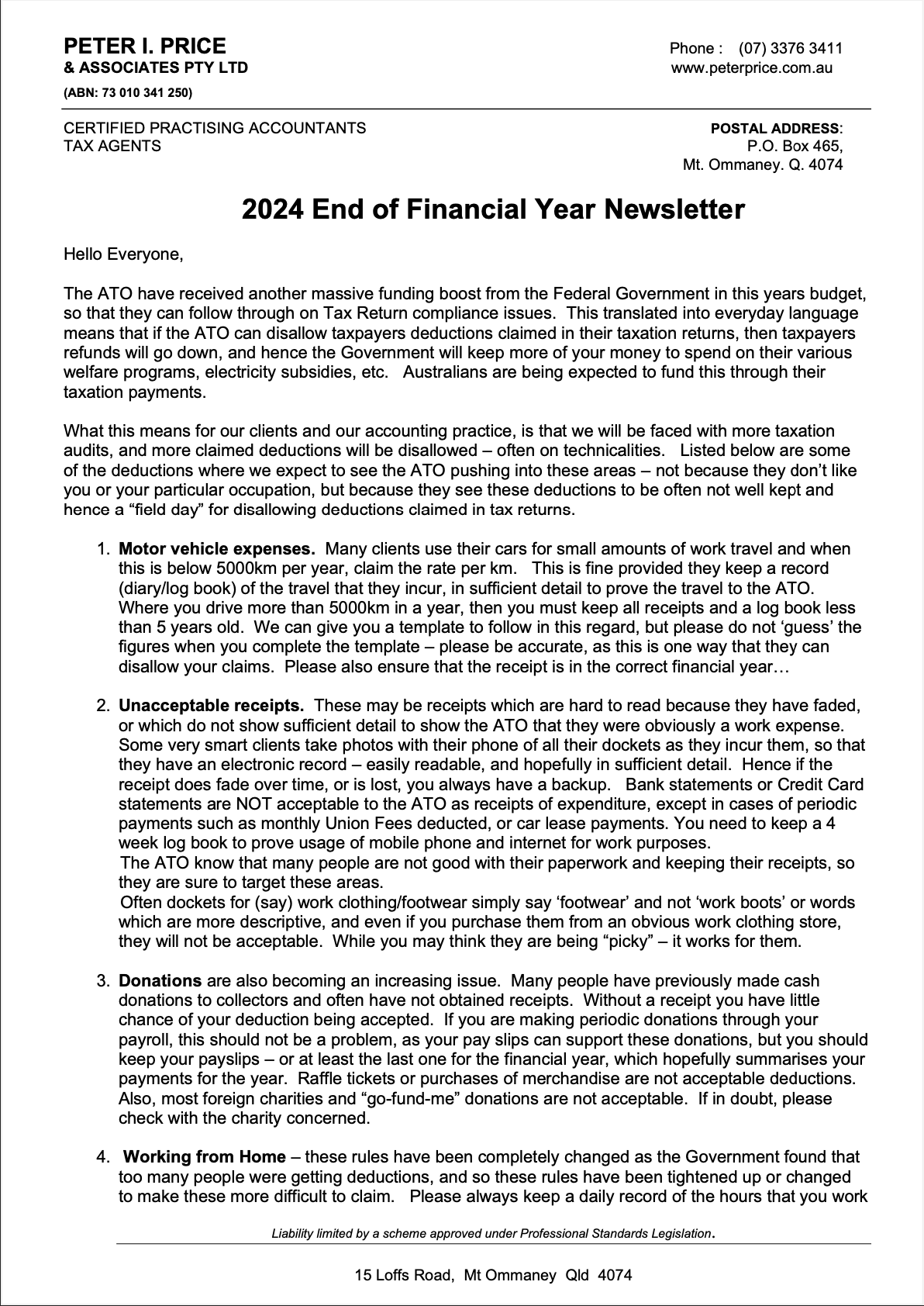Early intervention 'critical' as insolvencies surge

.
Interest rate rises, inflation and cost of living pressures are starting to have an impact on the Australian economy, leading many businesses to cut back or close entirely, a specialist law firm warns.
Taylor David Lawyers partner Scott Taylor cautioned that business conditions will likely deteriorate further throughout 2023, with 50 per cent of fixed rate mortgages expected to expire this year.
“These increased mortgage repayments will have a significant impact on households and the wider economy” he said.
In addition, Mr Taylor said the ATO is now back in enforcement mode after showing leniency during the Covid period.
The ATO has been chasing businesses that have not paid tax in the past two years, he said.
“It’s inevitable that many of these businesses will be turning off the lights for good. In a practical sense, there are consequences for business owners who have swept their financial turmoil under the rug,” he stated.
Insolvency Australia director Gareth Gammon explained that insolvency rates that were artificially supressed during the Covid period with Jobkeeper payments and the insolvency trading memorandum, are now bouncing back again.
“There was always going to be an increase in the number of insolvencies as things returned to normal,” he noted.
While insolvency rates haven’t yet reached pre-Covid levels, Mr Gammon said increased pressure from rising interest rates and the ATO now taking a more pro-active stance on chasing tax debts, there will be more company directors assessing where their business is at and what they should be doing.
“As a result of that, there is now greater pressure on accountants to assist those directors, reach out to insolvency practitioners and come up with a plan to deal with these challenges,” Mr Gammon stated.
The first half of 2022-23 had already seen a 62 per cent increase in the rate of insolvencies compared with the previous year.
The increase in NSW has been particularly dramatic with the state recording 2153 administration in the first half of the year compared to 2402 in the previous year.
ASIC’s company statistics reveal that this trend has continued into the first quarter of this year.
All appointments over a company including the first, subsequent and transitional appointments have already climbed to 1,575 for the March quarter as at 20 March 2023.
This brings the total number for 2022-23 to 6,415, almost as high as the 6,477 insolvencies recorded over the entire 2021-22 financial year.
The worst hit sector is by far construction, with a total of 1,741 insolvencies.
While the impact of insolvencies this year will be felt across most economic sectors, Mr Taylor said construction, manufacturing and logistics are typically the most prone to insolvency.
Data from the Australian Financial Security Authority (AFSA) has shown that personal insolvencies are also on the rise.
During January 2023, there were 772 new formal personal insolvencies, rising from 612 in December 2022, noted Mr Taylor.
Given the current economic conditions, Mr Gammon said accountants need to reviewing client files on a more regular basis and having tough conversations with their business clients.
“We would like to see accountants being more engaged in reviewing client files not just annually for their tax returns, but maybe once every six months or once a quarter,” he recommended.
“There is a perennial issue where directors either aren't aware [of the issues] or put their head in the sand when things get tight and accountants are very well advised to help them review their liabilities and to look at their cash flow forecasting.
“We are encouraging accountants to reach out proactively to their clients with a view to establishing some dialogue and having these tough conversations.”
Where issues are identified in the business, the accountant can then work with the business to develop potential solutions, he said.
Mr Gammon also advised accountants to reach out to an insolvency practitioner earlier on for technical advice and options in terms of how things could play out further down the track.
“The earlier that engagement is, the more options that will be available for restructure and a better likelihood of a positive result,” he said.
The Australian Restructuring Insolvency & Turnaround Association has also stressed that having frank discussions early on in the distress cycle is vital for accountants and their clients.
“If you want to keep that client as a long-term client, you need to help them confront the reality of what they're dealing with as soon as possible,” ARITA chief executive John Winter.
“If you suspect that a client is in trouble, try and organise a meeting to sit down with them and talk about what's happening in their business, make sure that they're doing things like keeping their books and records absolutely up to date, so that they know their trading position, make sure that they're not too far behind on their loan and other debt obligations.
“If they are, get them into see a registered liquidator as quickly as possible.”
Mr Winter said by addressing it earlier on, this can potentially provide businesses with more options such as small business restructuring.
“While the small business restructuring regime is not perfect, it is a tool that’s available,” he said.
“For larger clients, there's always the tools like voluntary administration. There are ways through this and the absolute experts in this area are registered liquidators. They turn around businesses all the time.
“So, if you're able to get a registered liquidator in there early enough, you will keep that client as a long-term client and you will have been a critical part of saving them. That's a relationship that will endure,” he stated.
Mr Gammon said it is also important that accountants handle these conversations with clients with sensitivity and empathy.
“Whilst we're encouraging accountants to reach out and have those tough conversations, accountants should also be aware that it can take a personal toll on the director dealing with some of these difficult issues,” he explained.
“These can be very difficult times so having that degree of empathy and sympathy is very important.”
Miranda Brownlee
23 March 2023
accountingtimes.com.au

